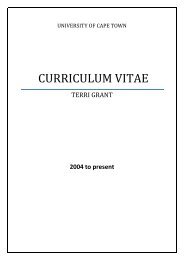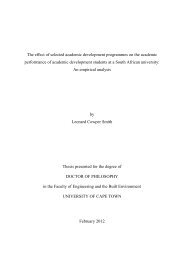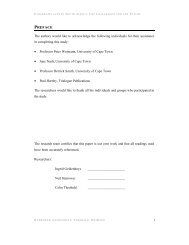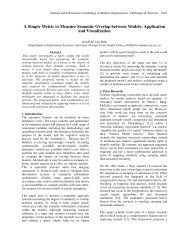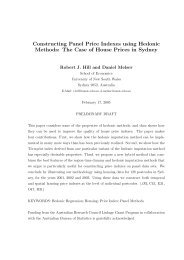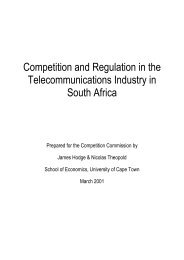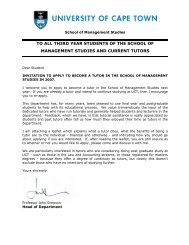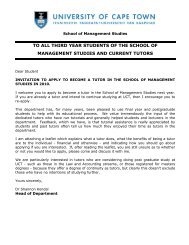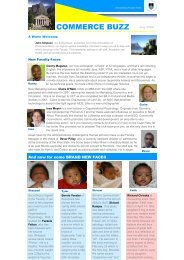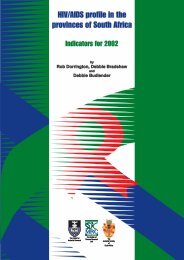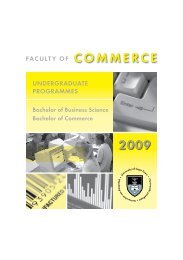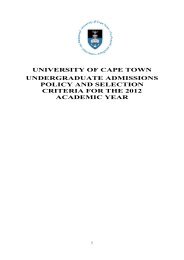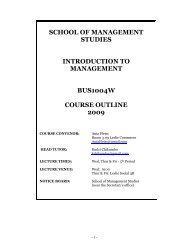Financial Management Honours
Financial Management Honours
Financial Management Honours
Create successful ePaper yourself
Turn your PDF publications into a flip-book with our unique Google optimized e-Paper software.
General discussion and questions will proceed. Circumstances may however require this<br />
procedure to be altered on occasions.<br />
4.4 Class Meetings<br />
Besides the presentation of assignments and discussion papers, weekly class meetings serve<br />
to create learning experiences for the class as a whole. They are conducted in various modes<br />
of which the following are the most frequent.<br />
• Case Study. The session is used for presentation of case study findings and discussion<br />
of the issues which arise.<br />
• Unstructured Seminar. This results from students being given a topic to research. On<br />
arrival at the class meeting, a chairperson is appointed, a framework for discussion is<br />
agreed and the topic is discussed, drawing on the reading and research of the whole<br />
group.<br />
• Structured Seminar. This combines the features of a lecture conducted by a staff<br />
member with specific preparation based on prescribed readings.<br />
• Guest Speakers. On occasions, visiting speakers with specialist expertise are invited to<br />
address the class.<br />
4.5 Assignments:<br />
The objective of assignments is to develop the participant's ability to:<br />
• perform limited research on a specific issue;<br />
• to present varied opinions thus obtained into a succinct summary; and,<br />
• to select and justify conclusions.<br />
The group assignments have the added objective (as with case studies) of developing the<br />
participant's reasoning and human relations skills.<br />
An individual discussion paper and/or research proposal is required and a group valuation<br />
research project is also required to be undertaken during the programme. We make extensive<br />
use of Adobe and your submissions should be in PDF format. All references should be<br />
properly acknowledged and a full bibliography should be provided. Assignments are spread<br />
throughout Semester 1 and 2. In general, marks will be awarded for content (adequacy of<br />
coverage, analysis and research) and structure (clarity, logic, strength of conclusions). Marks<br />
may be lost for poor presentation (typographical errors, defective bibliography, poor layout).<br />
4.6 Tests and examinations<br />
A series of examinations will be held during the year and usually after each section.<br />
Participants will only be permitted to bring limited reference material into examinations. In<br />
some modules, students will not be able to bring in any materials. The examinations will<br />
primarily take the form of short case studies or problems and may include questions on cases<br />
covered in the programme. The scheduled dates for the tests and examinations are set out in<br />
the programme.<br />
4.8 Reference Material<br />
The reference material is drawn mainly from three sources. Firstly, prescribed texts, which<br />
provide a basic reference document on selected issues. Secondly, the libraries with vast<br />
resources of books and journals (access is available to the Jagger Linear Library and UCT’s<br />
electronic database resources). Thirdly, it is expected of students to remain current with<br />
5



